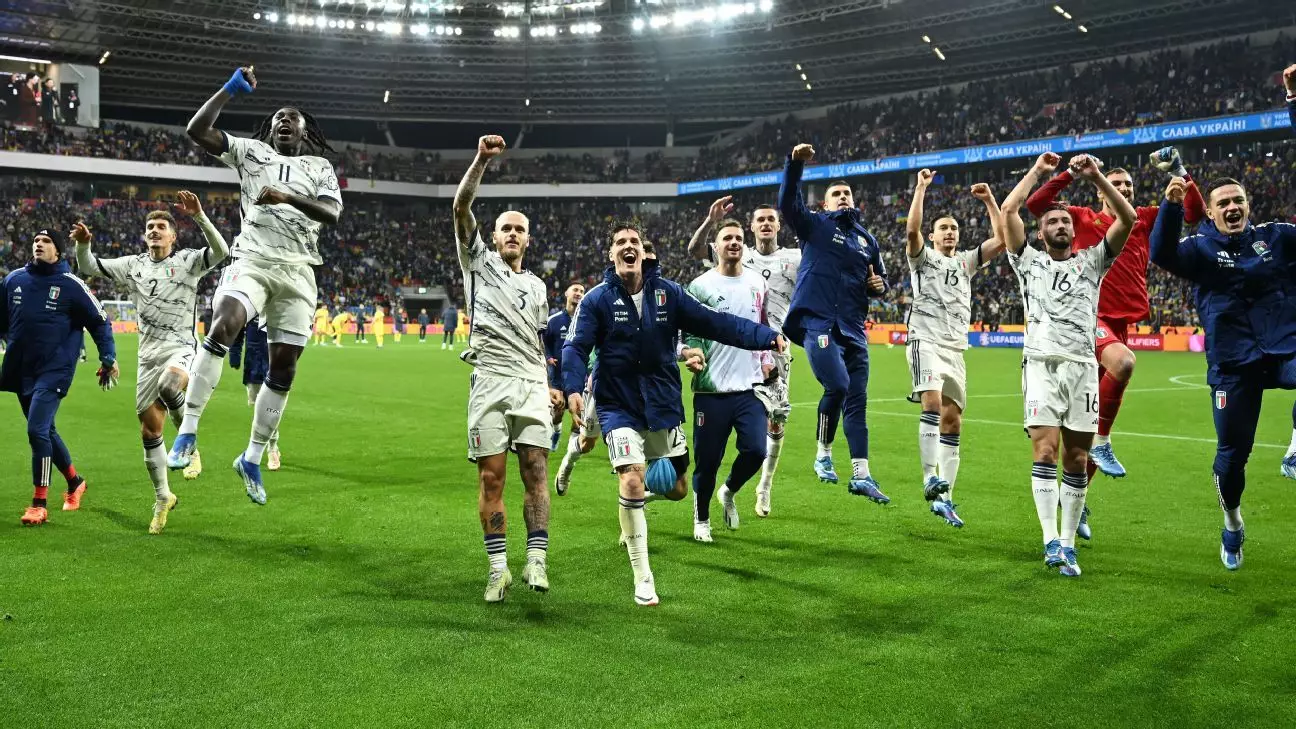Italy, the defending European champions, had their fans on the edge of their seats as they struggled to secure a spot in Euro 2024. With only one successful qualification out of their past four attempts, the possibility of not qualifying for the tournament was a nightmare scenario that no Azzurri fan wanted to face. Although there was the safety net of a playoff if needed, it was a nerve-wracking moment when Mykhailo Mudryk went down in the penalty area in injury time. Unfortunately, the referee and VAR officials decided not to intervene, leaving Italy with a lucky escape. The question that arises from this situation is whether Italy’s performance warrants their place in the Euros.
A Chance at the Euros: Can Italy Make an Impact?
The answer to that question is a definite “yes.” While it’s true that a lot can change between now and the start of the Euros on June 14, and that anything can happen in a knockout tournament, Italy has the potential to make an impact. Despite not being considered as one of the top favorites, apart from France, no team looks exceptionally strong at the moment. Italy has adopted an approach under manager Luciano Spalletti that revolves around being proactive, dominating the game, and possessing the ball. This style may differ from Italy’s traditional approach in the past, but it aligns with successful teams at the club level and is supported by analytics. However, the challenge lies in translating this approach to the international level and overcoming the team’s lack of cohesiveness and experience.
The Strengths and Weaknesses of Italy’s Squad
Italy’s squad comprises a mix of talented individuals, but it also highlights some weaknesses. The defensive line, which was once criticized, now appears stronger and deeper than it was before. Gianluigi Donnarumma, despite not reaching the predicted heights, has the potential to be a reliable goalkeeper when at his best. The full-backs, Giovanni Di Lorenzo and Federico Dimarco, have proven themselves as top players in their positions. However, the midfield is where weaknesses become more prominent. Nicolò Barella stands out as an excellent player, but beyond him, there is a lack of consistency and reliability. With players like Davide Frattesi, Jorginho, and Bryan Cristante starting against Ukraine, who have limited club appearances, Italy’s midfield is vulnerable. The absence of Sandro Tonali due to a ban further worsens the situation. Additionally, the attacking options beyond Federico Chiesa are limited in terms of both quality and depth.
Federico Chiesa has emerged as Italy’s biggest attacking threat, capable of carrying the team on his shoulders. However, his injury history raises concerns about his consistency. Another player, Nicolò Zaniolo, possesses immense potential, but injuries and form dips have hindered his progress. Depth is also a concern, with the alternatives offering little more than occasional sparks of brilliance. Players like Matteo Politano, Domenico Berardi, Mattia Zaccagni, Moise Kean, and Stephan El Shaarawy exhibit occasional flashes of talent. However, they have failed to establish themselves as consistent contributors to the team. While some hope rests on the young talents of Wilfried Gnonto and Lorenzo Lucca, their lack of experience at the highest level begs the question of whether they can fill the void.
The center-forward position poses another challenge for Italy. Giacomo Raspadori impressed against Ukraine, but once Victor Osimhen returns from injury, his playing time could diminish. Ciro Immobile, who turns 34 in February, is enduring a below-par season and lacks widespread popularity. Mateo Retegui, despite his promising performances, carries doubts due to his injury history and limited experience at the top level. Gianluca Scamacca shows potential but has yet to prove himself consistently. Overall, Italy’s center-forward options are far from being world-class, and their reliance on relatively unproven talents is a significant risk.
Italy’s qualification journey for Euro 2024 has been far from smooth. While they managed to secure their spot in the tournament, their flaws and weaknesses are apparent. The lack of cohesion, experienced personnel in midfield, and uncertainty in the forward line make Italy a flawed, uneven, and incomplete team. However, it’s important to remember that these challenges are not exclusive to Italy. International football is characterized by its unpredictability and imperfections. Italy’s qualification for the Euros, despite its shortcomings, grants them the opportunity to compete on the biggest stage. Whether they can overcome their weaknesses and achieve success remains to be seen, but their presence in the tournament is a noteworthy achievement in itself.
